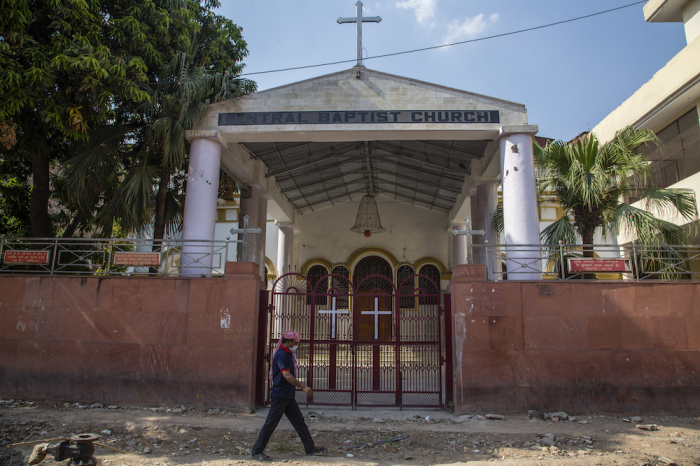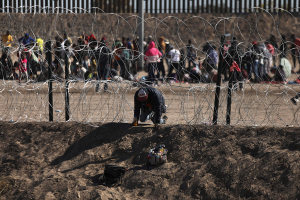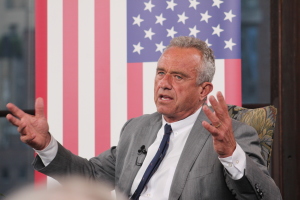Hindu mob brutally attacks pastor summoned to police station over claims of 'false' conversions

A Christian pastor summoned to a police station in India’s Chhattisgarh state was brutally beaten by a mob of 50 Hindu nationalists who were waiting for his arrival.
The mob falsely accused Pastor Ankush Bariaya of converting Hindus “illegally” and began beating the pastor with shoes and fists inside the Purani Basti Police Station in the state capital of Raipur, U.S.-based persecution watchdog International Christian Concern said in a statement on Saturday.
A witness at the scene was quoted as saying that the attack seemed to be "well planned."
"I think the police knew about the attack before it took place. It is sad that Christians are not safe even inside the police station,” the witness, believed to be one of the two pastors who accompanied Bariayar, added.
The pastor who was attacked was quoted as saying: “They told me to my face that they would kill me. I thought I was safe, being with the police in their premises, but I was wrong. In the beginning, the police did not do anything to protect me from the attack. After they hit me with the shoe and punched me in my face, the police then tried to stop them from beating me.”
Police registered a case against only seven of the people who were part of the mob, but then identified and arrested only two of them.
“Don’t we have the right to go to the police station and talk to the police?” Dr. Arun Pannalal, president of the Chhattisgarh Christian Forum, asked when speaking to journalists. “Why didn’t the police stop the attackers and protect Pastor Bariayar?”
He continued: “We have the right to choose any religion and propagate that religion. … The government must take the strictest action against the attackers who brazenly attacked the pastor. This needs to be taken to the highest level of law and order in the state.”
The attack “indicates the impunity enjoyed by many radical Hindu nationalists,” William Stark, ICC’s regional manager for South Asia, said.
“This is a symptom of a larger problem in India," he added. "Religious intolerance and religiously motivated violence have become so normalized that attacks on Christians in the presence of police, outside the station, have come to be expected. The only thing that has shocked Christians here is the location of the attack and not the attack itself.”
Christians make up about 2.5% of India’s population, while Hindus comprise 79.5%.
India ranks as the 10th worst country globally when it comes to Christian persecution, according to Open Doors USA’s 2021 World Watch List. The U.S. Commission on International Religious Freedom has urged the U.S. State Department to label India as a “country of particular concern” for engaging in or tolerating severe religious freedom violations.
Open Doors USA warns that since the ruling Hindu nationalist Bharatiya Janata Party took power in 2014, persecution against Christians and other religious minorities has increased.
The group reports that “Hindu radicals often attack Christians with little to no consequences.”
“Hindu extremists believe that all Indians should be Hindus and that the country should be rid of Christianity and Islam,” an Open Doors fact sheet on India explains. “They use extensive violence to achieve this goal, particularly targeting Christians from a Hindu background. Christians are accused of following a ‘foreign faith’ and blamed for bad luck in their communities.”
Several Indian states, including Chhattisgarh, have “anti-conversion” laws, which presume that Christian workers “force” or give financial benefits to Hindus to convert them to Christianity.
While the anti-conversion laws have been in place for decades in some states, no Christian has been convicted of “forcibly” converting anyone to Christianity. These laws, however, allow Hindu nationalist groups to make false charges against Christians and launch attacks on them under the pretext of the alleged forced conversion.
Some of these laws state that no one is allowed to use the “threat” of “divine displeasure,” meaning Christians cannot talk about Heaven or Hell, as that would be seen as “forcing” someone to convert. And if snacks or meals are served to Hindus after an evangelistic meeting, that could be seen as “inducement.”




























